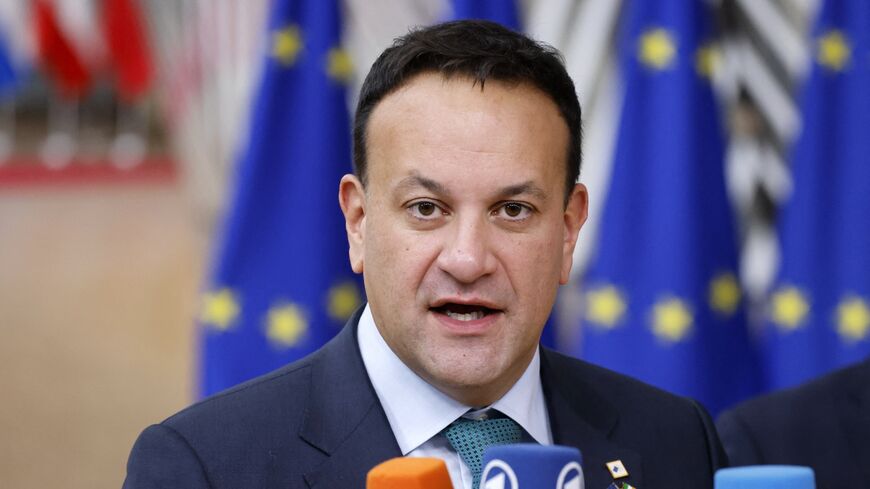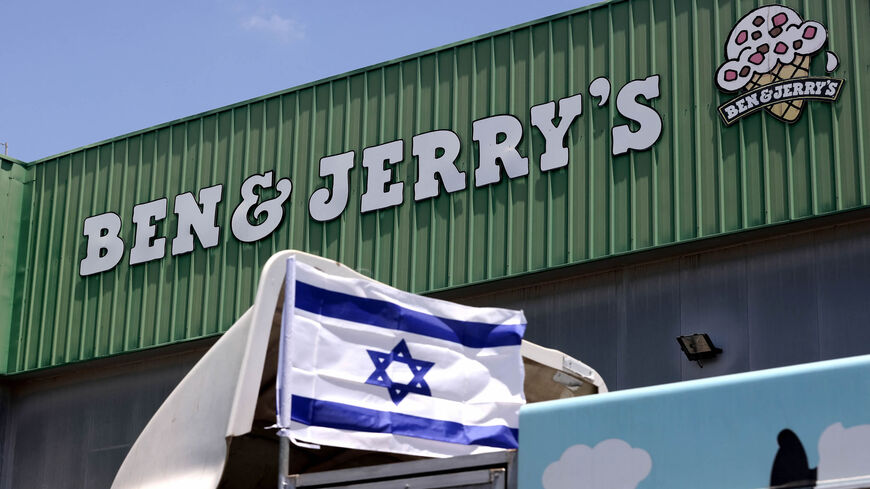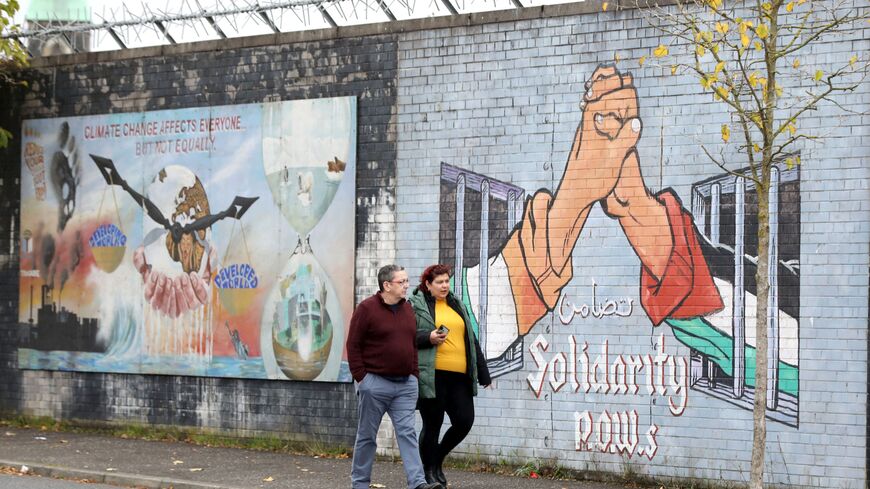Ireland wealth fund to divest from 6 Israeli companies in blow to relations
The amount of Ireland's divestment is relatively small, but it is part of the wider effects of the Gaza war on Israeli businesses.

Ireland's sovereign fund is divesting from six Israeli companies in response to domestic political pressure, Dublin’s finance minister said on Friday, as relations between the two countries take another hit.
Finance Minister Michael McGrath said in a statement that the National Treasury Management Agency decided to divest the Ireland Strategic Investment Fund from Israeli firms that “have certain activities in the Occupied Palestinian Territory.” The total amount divested amounts to 2.95 million euros ($3.2 million) from the following companies, most of them banks:
- Bank Hapoalim BM
- Bank Leumi-le Israel BM
- Israel Discount Bank
- Mizrahi Tefahot Bank Ltd.
- First International Bank
- Rami Levi CN Stores
The decision followed pressure from main opposition party Sinn Fein. The left-wing Irish republican party is currently pushing a bill in the parliament that calls for a complete divestment of Israeli companies operating in Israeli West Bank settlements.
Sinn Fein member of parliament John Brady said on Friday that the divestment is not sufficient.
“Sinn Fein has pushed the government this far, but today’s announcement does not go anywhere near far enough and must only be the start,” said Brady in a statement on Sinn Fein’s website.
Why it matters: Though the amount of the divestment is small compared to the Ireland Strategic Investment Fund’s 15 billion euros in assets, the decision represents another deterioration in Israel-Ireland relations. In February, Prime Minister Leo Varadkar called on the European Union to review its trade agreement with Israel over the Gaza war.
In November, Israel summoned the Irish ambassador over comments Varadkar made about an Irish-Israeli hostage. Varadkar described 9-year-old Emily Hand as having been “lost and found” after being released from Hamas captivity, drawing a rebuke from Israeli politicians.
Ireland has traditionally had strong pro-Palestinian and anti-Israeli sentiment, with many Irish republicans equating their fight with the United Kingdom to the Palestinians’ conflict with Israel.
The Ireland Strategic Investment Fund is not the first European sovereign fund to divest from Israeli companies over activities in the West Bank. Norway’s $1.6 trillion wealth fund, the largest in the world, has divested from nine Israeli companies in recent years over activities in the territory. In March, the fund’s ethics council said it was investigating whether investments in other companies are in line with its guidelines in relation to the Gaza war, Reuters reported at the time.
Some international companies have tried to exit the West Bank settlements in recent years. US ice cream giant Ben & Jerry’s said in 2021 that it would stop selling its products in the settlements. However, Ben & Jerry’s lost a legal case in 2022 against its parent company, Unilever, over the decision, enabling the ice cream to continue being sold.
In 2018, US hospitality firm Airbnb said it would stop listing properties in the settlements. However, the company reversed that decision a year later following legal action from hosts.
The Israeli company SodaStream moved its factory out of the West Bank in 2015 due to pressure from the Boycott, Divestment, Sanctions (BDS) movement. Around 500 Palestinians lost their jobs as a result, The Guardian reported in 2016.
Know more: The Gaza war has had several effects on the Israeli economy. On Thursday, Israel’s McDonald’s operator Alonyal Limited said it is selling its businesses back to the corporation. McDonald’s has faced boycott calls over its activities in Israel since the start of the war.
In February, the credit rating agency Moody’s downgraded Israel’s rating for the first time ever, citing the Gaza war.
Moreover, Israel’s tech sector experienced a major drop in funding after the start of the war, complicating its recovery from previous struggles, David Rosenberg wrote in a memo for Al-Monitor Pro in February.









